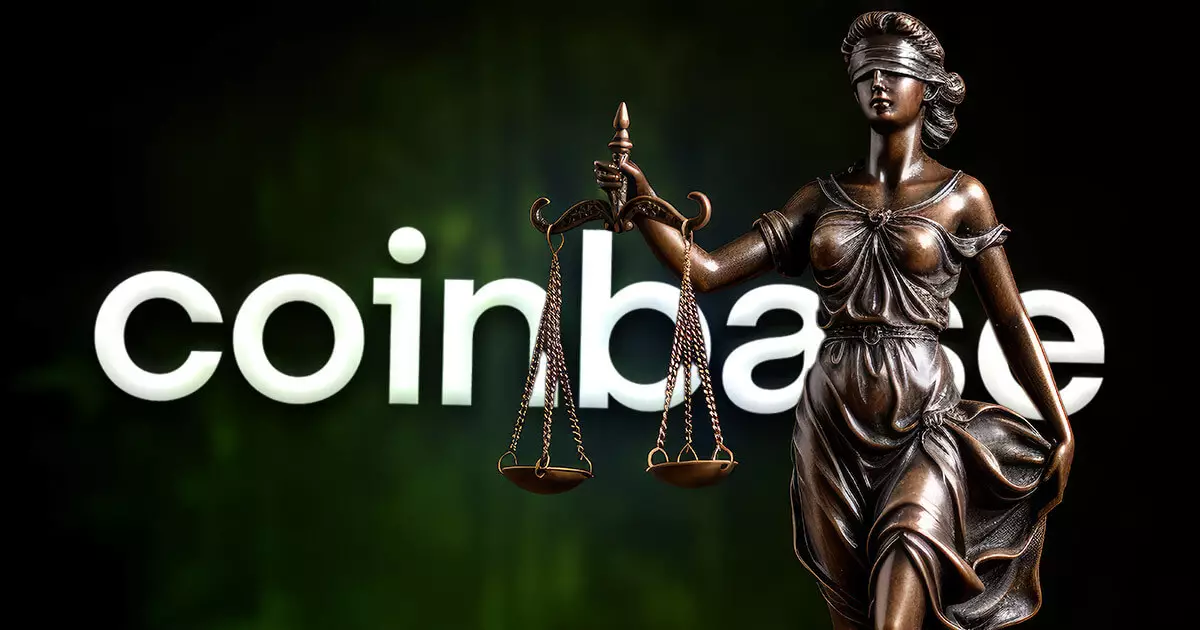BiT Global has recently escalated tensions within the cryptocurrency realm by filing a lawsuit against Coinbase, the premier crypto trading platform in the United States. According to a court filing dated December 13, BiT Global, a crypto custodian linked to the well-known figure Justin Sun, alleges that Coinbase has engaged in anti-competitive practices that threaten the integrity of the cryptocurrency market. At the heart of this legal battle is the assertion that Coinbase unjustly removed wrapped Bitcoin (WBTC) from its exchange to advantage its own wrapped Bitcoin product, Coinbase Wrapped Bitcoin (cbBTC).
BiT Global contends that this strategic maneuver is a blatant violation of antitrust laws. By prioritizing its in-house product over a well-established competitor, Coinbase is accused of leveraging its market dominance to stifle competition. This allegation raises significant concerns about the implications for innovation and consumer choice within the rapidly evolving crypto landscape.
The wrapped Bitcoin market is characterized by its complexity, with multiple products vying for dominance. WBTC has historically been a significant player, but its removal from Coinbase’s platform has raised eyebrows. The lawsuit claims that Coinbase’s actions were not designed to meet legitimate listing criteria, as evidenced by the exchange’s recent choices to include various low-quality meme coins such as PEPE and MOG. This inconsistency reinforces BiT Global’s argument that the delisting of WBTC was not based on its merit as an asset but rather a calculated move to usurp market share.
In effect, Coinbase’s actions might not only undermine WBTC but also raise larger questions about the firm’s integrity in ensuring fair competition. By stating that it would not charge wrapping or unwrapping fees “today,” BiT Global suggests that Coinbase might have ulterior motives to impose such fees once WBTC is marginalized and its own product gains dominance. Such strategic positioning suggests potential manipulation, further intensifying the antitrust discourse surrounding the case.
The ramifications of this lawsuit extend beyond just BiT Global and Coinbase; they stir existing concerns regarding the centralization of power within the cryptocurrency sector. BiT Global is urging the court to intervene to halt Coinbase’s alleged monopolistic practices, seeking not only to restore WBTC but also to preserve decentralized innovation. This appeal resonates with the wider DeFi community, which has increasingly expressed fear that centralized platforms may inhibit the principles of decentralization that many crypto enthusiasts hold dear.
While WBTC was once the favored wrapped Bitcoin option, recent events have put its long-term viability into question. The intricate web of custody control and partnerships following the shift from BitGo has left WBTC navigating a challenging landscape. Despite retaining its status within DeFi protocols like MakerDAO and Aave, concerns regarding its reliability persist, compounded by Justin Sun’s association with BiT Global.
In response to the shifting tides within the wrapped Bitcoin sector, several firms, including Coinbase, have launched their own products. Notably, cbBTC has quickly emerged as a strong contender, solidifying its position as the second-largest wrapped Bitcoin product on the market, with a market capitalization of around $2 billion. The deployment of cbBTC on Ethereum and its Layer 2 network Base in September has added to its appeal, particularly in the context of a dwindling WBTC supply.
While WBTC continues to be a prominent cryptocurrency, boasting a market cap of $13.7 billion, the pressure stemming from the ongoing challenges it faces—exemplified by a reduction of its token supply by more than 20,000 BTC—cannot be ignored. The challenges bear implications for market confidence and highlight the fragility of crypto assets in navigating competitive landscapes.
As the lawsuit unfolds, it is set to shape not only the fortunes of BiT Global and Coinbase but also the greater narrative surrounding competition within the cryptocurrency market. The courtroom may serve as the battleground where the future of wrapped Bitcoin—and, by extension, decentralized finance itself—will be debated. Watching how this legal clash develops might provide a clearer view of navigating the dynamic interplay of competition, innovation, and market integrity in the crypto space.


Leave a Reply